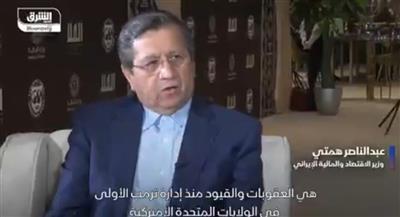Reflecting on the impact of illegal sanctions and the so-called maximum pressure campaign during the administration of former U.S. President Donald Trump, Hemmati noted that it was only natural for the Islamic Republic to adopt diverse strategies to counteract what he described as Washington’s harsh measures. He emphasized that these efforts have led to both economic growth and enhanced collaboration with countries around the world.
So far this Iranian calendar year, which concludes on March 20, Hemmati reported an 18 percent increase in non-oil trade, alongside a positive trend in oil exports. He stated that Iran has successfully navigated the most challenging phase of external pressures and is committed to further progress in this regard.
Hemmati acknowledged the difficulties faced during 2018-2020 when oil exports plummeted due to sanctions and compounded by the COVID-19 pandemic, which exacerbated economic strains on citizens' lives. However, he expressed optimism about Iran's proactive planning to mitigate the effects of sanctions. "We have developed various scenarios to implement our economic agenda and are prepared for any situation," he affirmed.
He also addressed the resilience of emerging economies amid external pressures, stating: “Today, all countries are seeking cooperation and coordination against unilateral U.S. pressure. Alliances such as BRICS and D8 are areas we aim to expand.”
Hemmati concluded by expressing a commitment to fostering closer ties with neighboring countries, asserting that regional stability is contingent upon strong economic relations among them.

